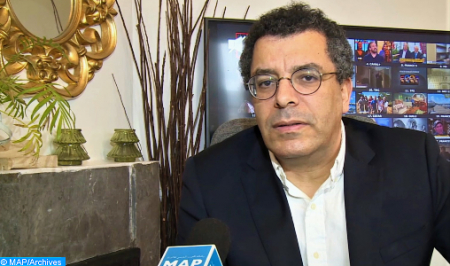Faithful to its Tradition as Pro-peace Power, Morocco Calls for Pacification and Libyan Unity – Political Scientist –
Faithful to its tradition as a pro-peace power, Morocco advocates pacification and Libyan unity to get out of the crisis, says political scientist Mustapha Tossa. In an analysis published Friday by Atlasinfo information website, the geopolitical expert commented the Berlin 2 conference on the Libyan crisis under the title “No Berlin solution to the Libyan crisis!” Mustapha Tossa affirms that recent developments in the Libyan crisis have been an opportunity to “bring out the distinction between two completely contradictory approaches of the Maghreb countries”. While Algeria perceives Libya as a theater of military intervention, after its president Abdelmadjid Tebboune threatened to intervene militarily in Tripoli, Morocco, “faithful to its tradition as a pro-peace power, made the choice of reconciliation and Libyan consensus to get out of the crisis,” the political scientist points out. While “Algeria seems as a country of destabilization and division”, Morocco, “advocates pacification and Libyan unity which must be the exclusive work of Libyan actors and citizens”, Tossa goes on. Moreover, Morocco’s position was explicitly expressed by the Minister of Foreign Affairs Nasser Bourita, who affirmed, during a press conference held Thursday in Rabat, in the presence of Aquila Saleh, that “there is no Berlin solution to a North African problem”. While Morocco had established itself at the regional level as the only dynamic power in the process of Libyan reconciliation through the several meetings held as part of the Bouznika process, it was paradoxically excluded from the first Berlin conference on Libya, recalls Mustapha Tossa. “By proceeding in this way, German diplomacy had shown a secret animosity towards the Kingdom by denigrating its positive role in Libyan reconciliation. This exclusion had taken on a whole new dimension when, after the American recognition of Moroccan sovereignty on the Sahara, the only country which asked for a meeting of the security council to try to invalidate this historic decision was Germany”, he underlines. Thus, it seems that Germany’s main concern is to undermine the interests of Morocco, deliberately serving a subversive regional agenda, Tossa notes. And when Moroccan diplomacy publicly denounced this duplicity, Berlin had attempted some contortions to try to appease Moroccan anger. Among these recent signals, the invitation extended to Morocco to attend the Berlin 2 conference. But though being physically absent at this conference on Libya, Morocco insisted on explaining the framework of its reconciling intervention in the Libyan scene. Its conviction is that there is no ready-made foreign recipe for solving the Libyan crisis and that the only viable solution must come from the Libyans themselves, says Mustapha Tossa. This is what Morocco is striving to achieve through relentless mediation between the various stakeholders of the Libyan crisis, the expert points out. Following the end of this international meeting, the political scientist says, Morocco insisted on clarifying its vision through this statement from its Foreign Minister Nasser Bourita: “There is no Berlin solution to a North African problem. North Africa has its own context and its own dynamics. Morocco knows these dynamics and that is why its contribution is to support the Libyans in the search for solutions.” The Berlin 2 conference did not produce concrete results, Tossa underlines, adding that beyond the proclamations of intent on the need to get the mercenaries and foreign armies out of Libya to facilitate the unification of Libyan institutions and the organization of elections scheduled by the United Nations on December 24, there are no binding mechanisms for the international stakeholders in this crisis.

